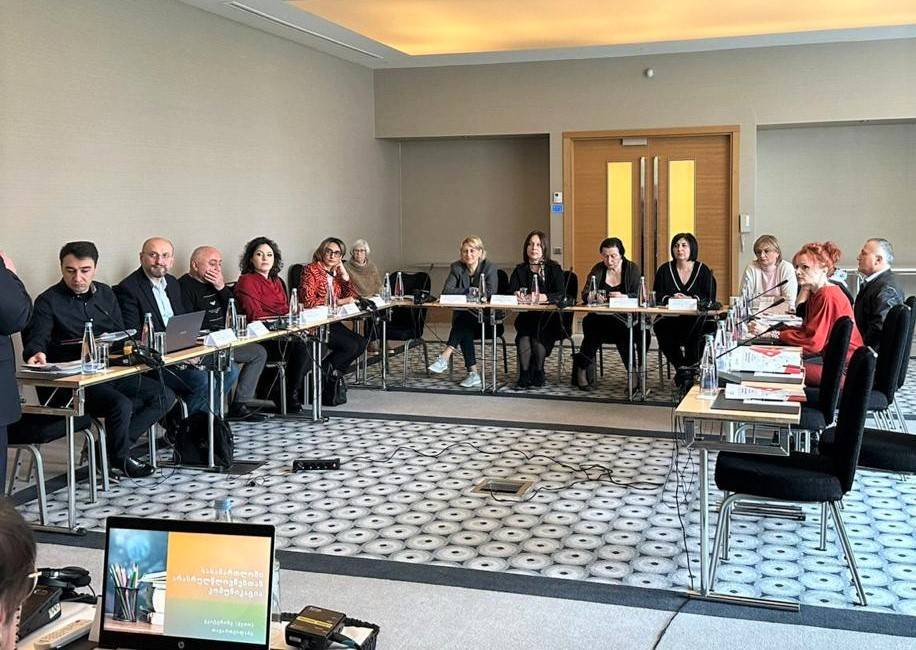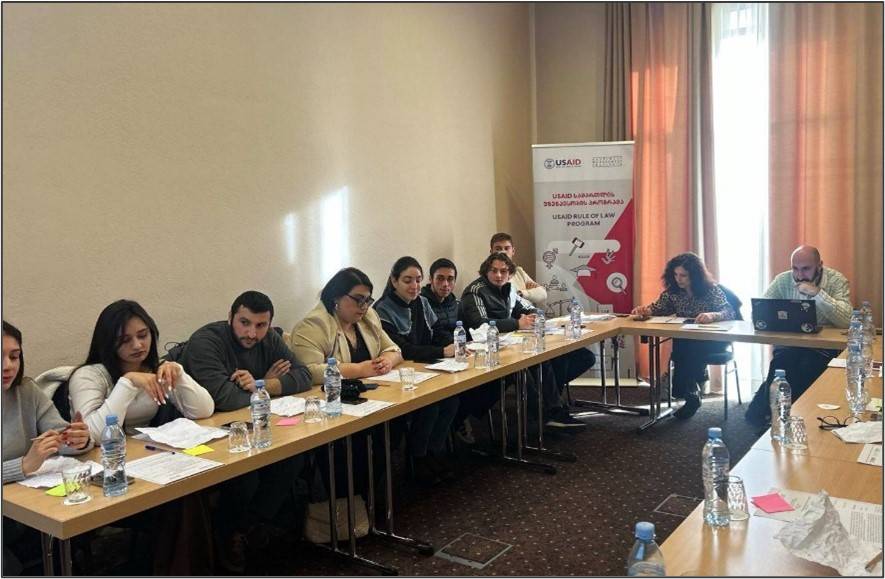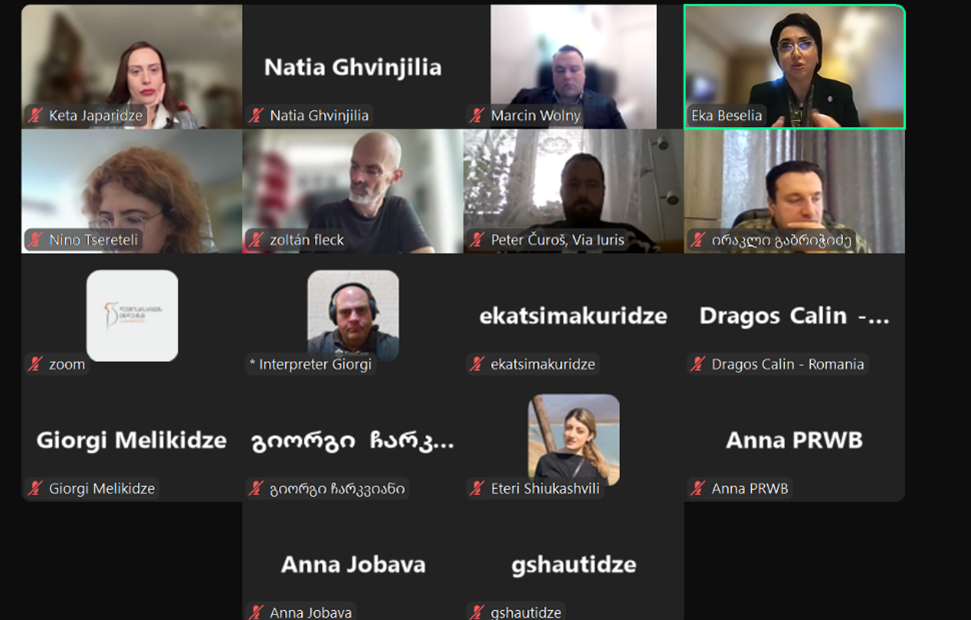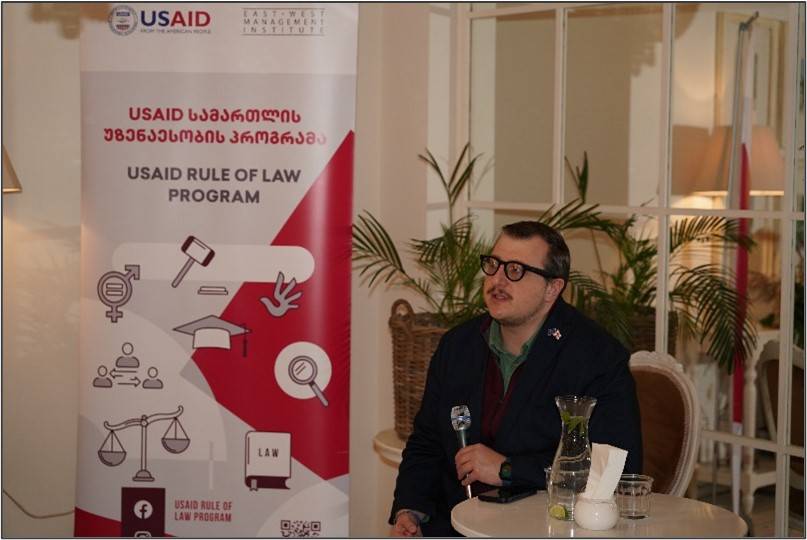Seminar for Judges on Communicating with Children in Courts
USAID Rule of Law Program gathered fifteen civil and administrative judges from Kutaisi Court of Appeals, Batumi, and Kutaisi City Courts, and Khelvachauri and Ozurgeti District Courts to discuss issues related to communicating with children in courts. Judges who participated in the Rule of Law Program’s September 2022 study visit to the US on the rights of the child also participated in the seminar.
So the judges could become more familiar with the topic and find modern, practical ways to address problematic issues in this area, both a Georgian child psychologist and an American judge were included in the seminar. Ekaterine Tavartkiladze, an experienced Georgian child psychologist, and American judge James Redwine, who is conducting a long-term shadowing program at the Batumi City and Khelvachauri District Courts as part of the Rule of Law Program’s Judicial Exchange component, were chosen for this purpose.
The topics in the seminar included: the importance of psychological aspects in civil and administrative cases involving children; children’s psychological challenges and the processes that affect a child’s reactions to family disputes; court proceedings from the child’s point of view; special challenges of communicating with children in court; special challenges of communicating with children with disabilities; and adapting the courtroom and court proceedings to meet the psychological needs of children.
At the beginning of the seminar, the judges talked about the problems they face in their courtrooms when communicating with minors. The Georgian expert and American judge gave advice to the judges on: how to begin communicating with a child in court, how to reduce the nervousness of children caused by the court environment, what the judge should do to eliminate parental influence or psychological pressure on a child during his or her testimony; how the judge can understand the child's true interest; how to phrase questions addressed to a child; why the judge should pay attention to the child's stress reactions when communicating with a child; how the judge should respond if a child does not answer a question; and how to define the boundaries between public opinion and the interests of the child.
The participants of the US study visit shared with their colleagues information they received during the visit about the American practice of communicating with children in court and handling juvenile cases.
One of the participants of the US study visit, Kutaisi City Court Judge Tsitsino Kikvadze, noted that the judge needs to explain to the child in a private conversation that the decision the judge makes is the obligation of the judge as defined by law, and the child should not be angry at the parents for this decision if the judge makes a decision with which the child is unhappy.
Ozurgeti District Court Judge Tornike Kapanadze, who also participated in the US study visit, shared with his colleagues information about the technical arrangement of a child-friendly court environment in the United States.







